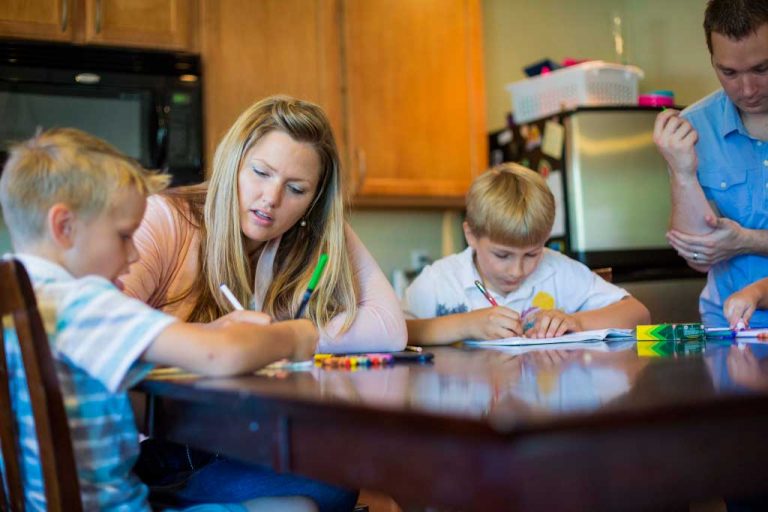Benefits of Music Education for Child Development
Several years ago I had a conversation with a relative of mine who was considering a new hobby for his young son after the boy decided that he didn’t like wrestling. Having learned to play the piano in my early adult years, I volunteered to give the kid a few piano lessons and give him exposure to music. I explained how beneficial that skill would be, pointing out that in addition to building his son’s confidence, learning to play the piano would allow him to accompany hymns in church meetings and in other settings.
His response to what I considered a generous offer to help surprised me: “I can’t think of a bigger waste of time!”
It turns out that attitude is wrong. Way wrong!
There are numerous studies and examples of the benefits of using music to educate children. Perhaps no testimony is more powerful than a statement from Albert Einstein about the effect that music had on his ability to figure out complicated thins. Regarding one of his most important discoveries, the theory of relativity, Einstein said:
The theory of relativity occurred to me by intuition, and music is the driving force behind this intuition. My parents had me study the violin from the time I was six. My new discovery is theresult of musical perception.
A summary of modern music-related neuroscience research published in 2014 by the Royal Conservatory of Music, one of the largest and most respected music education institutions in the world, gives plenty of evidence that a child’s education should involve musical training. The data they share from studies conducted in the 21st century makes this conclusion: music education produces bigger, better-functioning brains in people. Especially for children, who are in the formative years of their lives, music education is vital. That being said, the evidence shows that adults, whose brain development is much more advanced than children, also highly benefit from music education. So….it’s never too late to start your musical training, but it’s best to start children on that path as early as possible.
The list of benefits for studying music is a long one. I will point out some of the most prominent benefits that have been documented as correlated to music education. Because developmental education is most closely associated with children, most of the research from which this list was created came from studying children, and making comparisons between those who don’t study music versus those who do. However, as mentioned above, it has also been discovered that these benefits also apply to adults, though the effects of beginning music education in later years (versus not doing that) may not be as dramatic for brains that have already been developed.
The benefits of music education include:
- Improved language abilities, including speaking and reading
- Increased emotional resilience
- Increased empathy
- Increased attention span
- Increased ability to focus
- Increased overall intelligence (IQ)
- Increased self-confidence
- Higher ability to process information
- Better memory
- Better health and resilience
- More highly developed brain
- Better motor skills and coordination
My Family’s Experience with Music Education
When my wife and I were first married and began planning our family, we decided that music education would be a significant component of how we would raise our children. We have six (soon to be seven) children, and we have personally experienced many of the benefits listed above from having our kids exposed to music at early ages.
The video below is my daughter Maylee, playing an audition to perform as a guest soloist for a local orchestra in Utah.
While we have not performed any study that would quantitatively measure Maylee’s specific intelligence and brain development versus what she would be like without music (that would be hard to do with a study of only one person), it is clear that her ability to excel at reading, math, and overall education owes some gratitude to her music education.
The Suzuki Method
Nearly 10 years ago, we were introduced to the Suzuki Method for music education when we were looking for a new teacher for my daughter. In the area where we live (Utah County, Utah), there are lots of teachers who follow this method, which focuses on repetition and is based on extensive research of children by Shinichi Suzuki, a Japanese musician, educator, and philosopher. Dr. Suzuki believed that nearly all children have the ability to become talented musicians if placed in the right environment and trained correctly. The Suzuki approach to music training encourages everyone to become a skilled musician, developing self-discipline and self-confidence that spills over into other aspects of a person’s life.
This video is an introductory Suzuki violin lesson given to my son, Stephen, when he was 2 years old by a Suzuki teacher. Younger children can be successfully trained according to their ages and attention spans.
Listening to Classical Music to Develop Perfect Pitch
The Suzuki regimen includes the assignment to have children listen to the songs they’re learning at night while they sleep. In our home, we have set up a Sonos network, which Sonos speakers in each of our children’s rooms. This setup allows us to stream violin and viola songs to our daughter’s room, while streaming guitar and cello (the two instruments played by my two oldest sons) music to our sons’ room.
Listening to these songs during the night helps our children sleep more deeply, besides teaching their brains to recognize and remember the various pitches and keys the songs are played in. This helps with their musical education as well as with the overall development of their brains.
Making Music Part of Children’s School Curriculum
We homeschool our children for several reasons, including that we simply don’t have time for the inefficiencies involved in attempting to educate large batches of children in public and even private schools, which would leave almost no extra time for pursuing music and playing sports.
As with most homeschooling families, we often wonder whether our children might not be “keeping up” with their peers who get up very early in the morning and head off to school for 8 hours each day. However, each time they’ve taken the state required reading and comprehension assessments, they usually score off the charts high, in the 99th percentile. We attribute much of the ability they seem to have to read, comprehend, memorize, and expand their vocabularies to their involvement in musical education.
Each of our children is required to practice daily (5 days each week) on their instrument of choice. For the older kids, who are more serious about their musical pursuits, the time goes up to as much as 2 hours per day. While that amount of time may be overkill for kids who are not as inclined toward music, some musical exposure every day is scientifically proven to make kids smarter, more confident, and ultimately an infinitely superior alternative to video games, social media, and other similar activities on which kids waste too much of their time.







